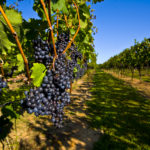 The agriculture industry is one of the more interesting in terms of adoption of new technology. Nowhere is this more so than in the various projects aiming to help provide better insight into the health of soil.
The agriculture industry is one of the more interesting in terms of adoption of new technology. Nowhere is this more so than in the various projects aiming to help provide better insight into the health of soil.
For instance, recent project from researchers at Penn State suggests utilizing plant-based sensors that are designed to capture the thickness and electrical capacity of leaves, which in turn gives an insight into the health of the soil they’re growing in.
An Israeli company, called Viridix, hope to bring such ideas to market. They have a network of sensors that is distributed across land to collect data from the soil. The data is then placed onto a platform for app developers to then build tools on top of.
Whereas the Penn State team aimed to detect soil moisture from observing the leaves themselves, the Viridix team use sensors in the soil itself to monitor ground moisture levels. The technology, which they call RootTens, aims to capture every bit of information about the soil a farmer could want.
Healthy soil
San Francisco based startup Biome Makers are applying a similar approach to the wine industry, with their technology helping winemakers understand the importance of the soil in wine production.
The soil is home to a dynamic, living community of bacteria and fungi that’s known collectively as the microbiome. Each of the organisms in the soil can influence the health of the soil, and therefore the wine that’s possible from that soil.
The company have produced DNA sequencing tests to allow the soil to be analyzed, with their tests designed specifically for the wine industry. In addition to sequencing the DNA of the soil, they also have proprietary algorithms that analyze the sample and diagnose the health of the soil for under $100.
These algorithms are trained on soil data from around the world, and each customer can share their own data and access this global sample via the WikiBiome platform developed by the company.
Biome Makers hope that this DNA-based insight will help the industry considerably, not least in reducing the use of pesticides. By providing a greater understanding of the health of the soil, these potentially harmful chemicals can be reduced, with the soil managed in a more proactive and sustainable manner.
We’ve seen a tremendous rise in DNA sampling for humans, but this is one of the first to do so for soil, and the technology adds to a growing canon of startups who are offering farmers greater insight into the soil they use for their livelihoods.